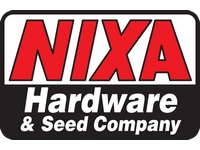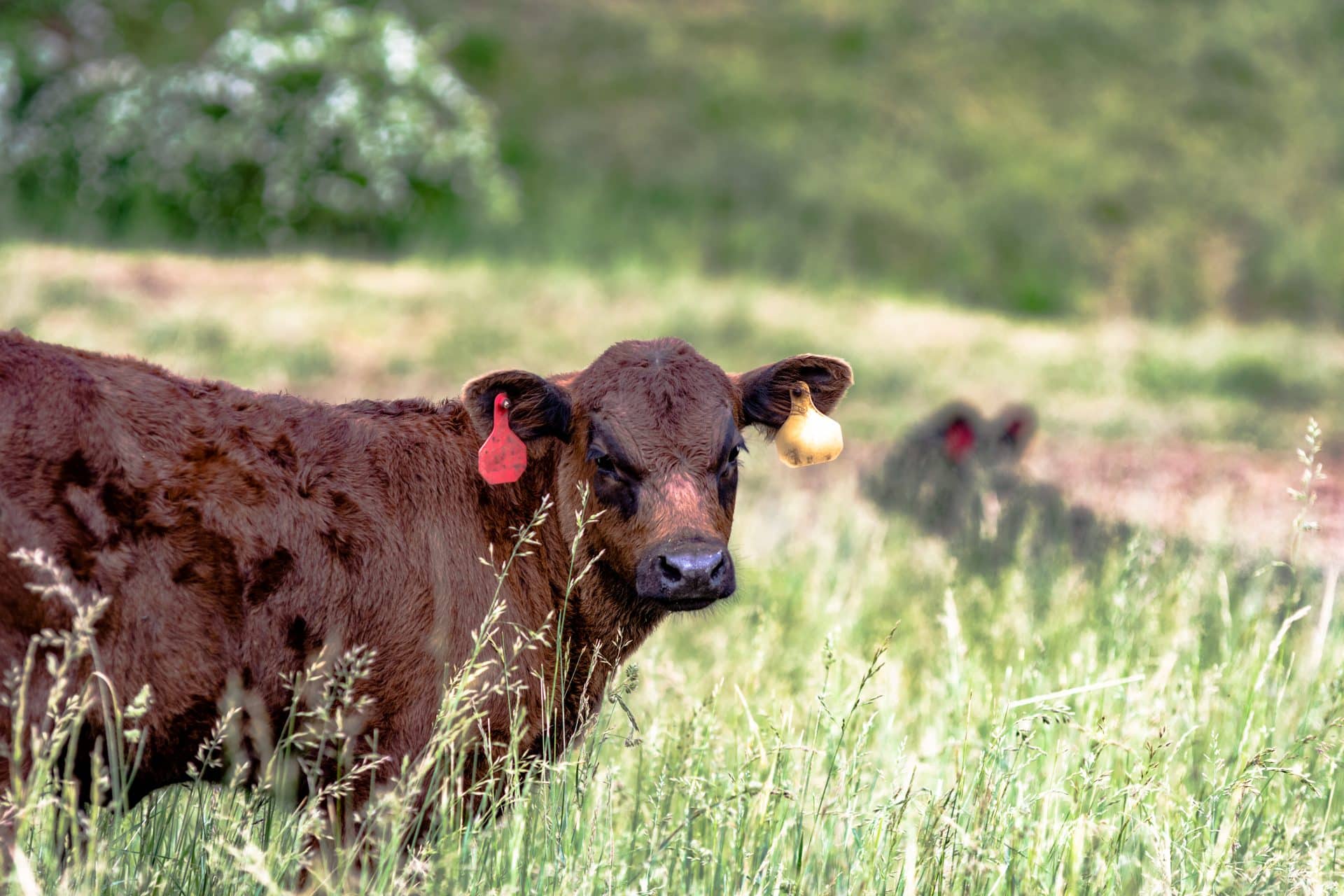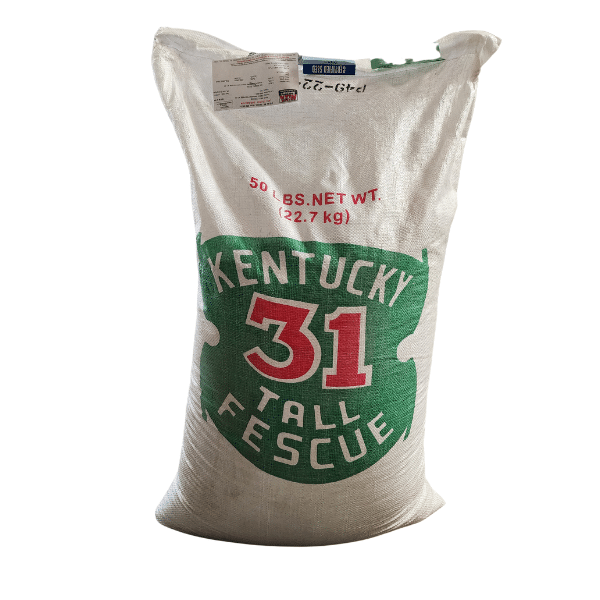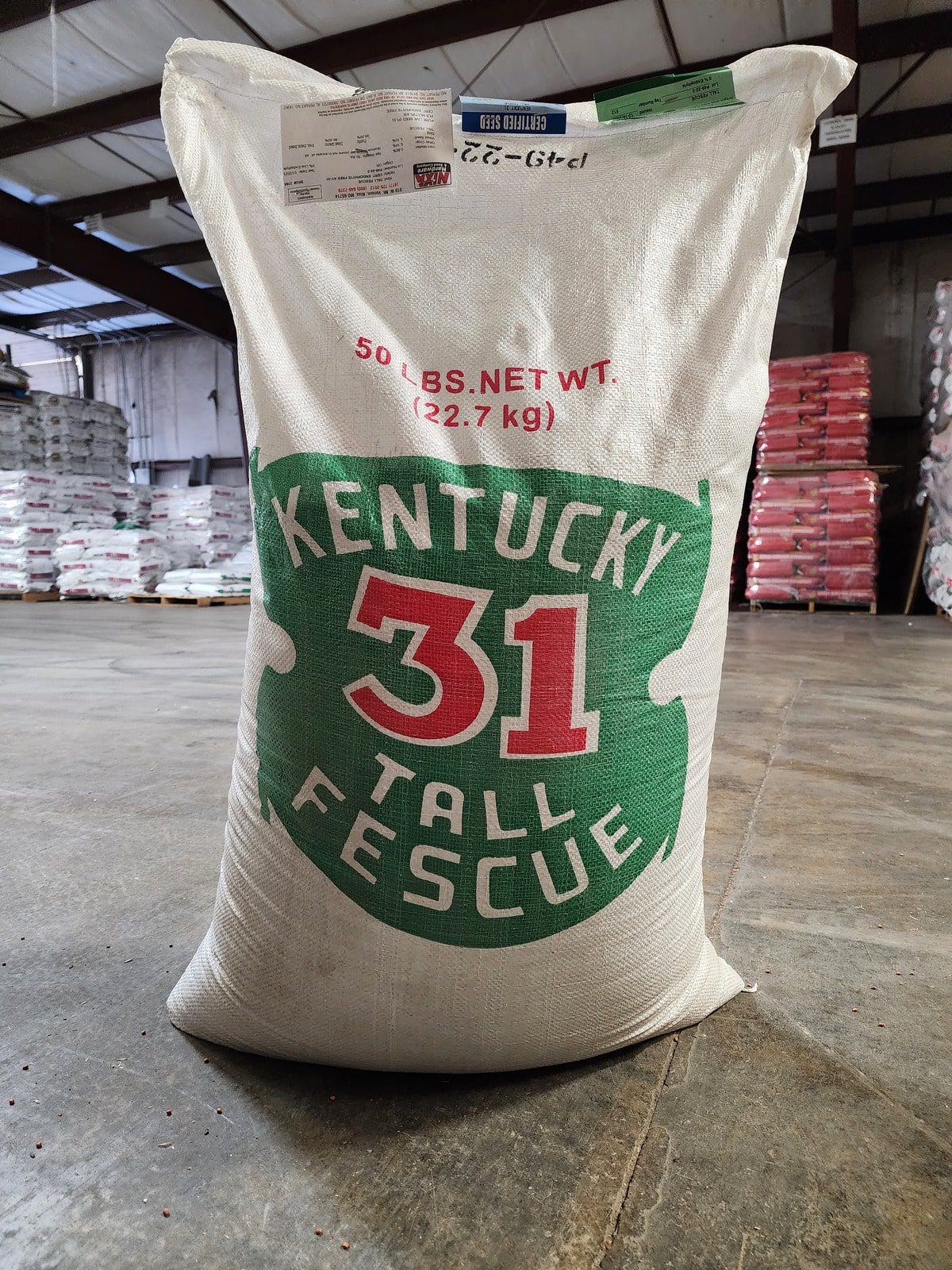Description
The endophyte-free, certified KY-31 variety is now available and provides a range of benefits for grazing animals. As the most widely adapted, hardiest, and most used fescue in the United States, KY-31 offers excellent performance and is now free from the endophyte fungus that can cause problems for livestock.
KY-31 is the Most Widely Adapted, Hardiest, and Most Used Fescue in the United States. Now available as an endophyte-free, certified KY-31 variety for a benefit to grazing animals.
Cool Season Forage
- A certified Kentucky 31 variety.
- Tolerates a wide range of temperatures, pH levels, drought conditions, & soil types.
- Highly productive cool season grass for hay & pasture.
- A perennial grass for more daily average weight gain on cattle.
Fungus-Free Advantages
The toxins that result from the endophyte fungus create a number of problems for grazing animals. Animals do not gain and can actually lose body weight despite constant grazing on apparent high-producing grass. They also experience reproductive problems such as low conception rates and poor offspring survival. Fungus-Free Kentucky 31 offers these benefits:
- More time spent grazing and an average of 63% more weight gain on cattle. Prevents “fescue foot”.
- Higher reproductive performance and greater milk production.
- Lower body temperatures (cattle spend less time in water and shade and more time grazing).
- Same stand survival rate as regular tall fescue.
Recommendations
- Plant 25 lbs./acre with a Legume, such as Ladino Clover (2 lbs./acre), Lespedeza (15 lbs./acre-–spring only), or Red Clover (6 lbs./acre)–This is a Must! Extensive research proves a steer will gain 100 lbs. more per season with a 1 / 3 legume pasture mix.
- Give fescue a rest in late summer when cattle perform inadequately on it and let the growth accumulate for use in the fall and winter.
- Fall planting (Sept.–Oct.) is strongly recommended if possible but can be spring seeded.
- Plant with a cover crop (Fall: Triticale or Cold-Grazer Rye) Spring: Forage Oats)
Or check out our Fast Pasture Mix that allows you to establish perennial grasses with a cover crop built in.
This certified variety is the most widely adapted, hardiest, and most used fescue in the United States. It tolerates a wide range of temperatures, pH levels, drought conditions, and soil types. And as a perennial grass, it provides more daily average weight gain on cattle.
Unlike other varieties, our Fungus-Free Kentucky 31 seed is free from the endophyte fungus that can cause a range of problems for grazing animals. With our seed, you can expect more time spent grazing and an average of 63% more weight gain on cattle. Plus, our seed promotes higher reproductive performance and greater milk production. It even helps keep cattle cooler by reducing body temperatures, allowing them to spend more time grazing and less time seeking shade and water.
For best results, we recommend planting 25 lbs./acre with a Legume, such as Ladino Clover, Lespedeza, or Red Clover. And don’t forget to give the fescue a rest in late summer when cattle perform inadequately on it, letting the growth accumulate for use in the fall and winter. Fall planting is strongly recommended if possible, but our seed can also be spring-seeded. For even better results, try planting with a cover crop like Triticale, Cold-Grazer Rye, or Haymaster Oats. Alternatively, check out our Fast Pasture Mix for an easy way to establish perennial grasses with a cover crop built in.
It is important to plant endophyte-free fescue for grazing animals because the endophyte fungus found in some fescue varieties can produce toxins that cause a range of problems for livestock. Grazing animals that consume fescue infected with endophyte fungus may experience reduced weight gain or even lose body weight, have lower conception rates, and suffer from poor offspring survival. Additionally, animals may experience a condition called “fescue foot,” which can cause lameness, loss of hooves, and even death. Planting endophyte-free fescue can help prevent these problems and promote better health and productivity for grazing animals.
How does endophyte-free KY-31 measure up in terms of yield, persistence, seedling vigor, and potential weight gain for cattle? Click here to view data from university trials.




